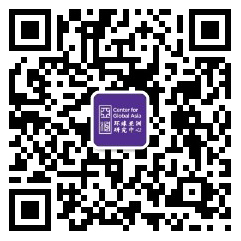2019 | Asian Migration | Brenda Rodriguez Alegre
Brenda Rodriguez Alegre University of Hong Kong Biography Brenda Rodriguez Alegre (She, her, hers) completed her PhD in Psychology from the University of Santo Tomas, in Manila. Her MA thesis and PhD dissertation were about transgender women in the Philippines. She is currently among the Board of Directors of STRAP or The Society of Transsexual Women Advocates of the Philippines. A Lecturer at the University of Hong Kong where she teaches Sexuality and Gender, she has upcoming publications on transgender people’s experiences, an important aspect of her activism with LGBTQI people and women. For the said advocacies, she has been featured as an expert in programs over the radio and on television. In 2018, she was awarded the 2018 LGBT + Public in Hong Kong, and has delivered a speech at the United Nations Human Rights Council in Geneva. Apart from her academic duties and activism in Hong Kong, Brenda sings soprano in a choir, and has also performed in “Vagina Monologues.” 「 The Transpinays: Migrating Bodies, Identities, and Sexualizations 」 Transpinays are migrants in their own right. We see transpinays integrate themselves in their native Philippines, but more recently a few of them have found new places outside of their home country where they integrate better. Hong Kong, Japan, China, Europe, Australia and the U.S. are just some of these places where transpinays have become partial or full migrants. This paper puts together narratives of transpinays who navigate this world where their identities are usually in question and their success and happiness depend on their courage, education, and resilience. We discover how in their native Philippines, their identities are mistaken and conflated as “bakla” at the same time. We discover how their gender identities, expressions, and roles as well as their sexualities evolve in a society which although is



